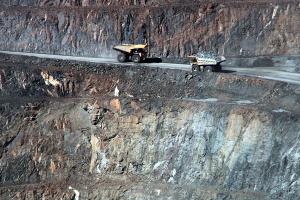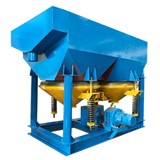The report states that a national minerals strategy would deliver a coherent and responsible approach to ensure mineral resources are used wisely to advantage Australia and complement work undertaken for the recent white papers on Energy and the Asian Century.
The findings, released as one of a series of reports in Sydney recently, are the result of a three-year collaboration between The University of Queensland, UTS, CSIRO, Curtin University, CQ University and the Australian National University.
Dr Damien Guirco, research director of the UTS Institute for Sustainable Futures said the current state of play in Australia is inadequate.
"The minerals industry has always operated in an evolving global landscape, but it’s becoming clear that social and environmental factors will become more important to head off future vulnerability," Dr Giurco said.
"A national strategy would remove the complexities of differing regulations across states and territories and shift the focus towards maximising long-term social, economic and environmental benefits for communities, regions and the nation."
Anna Littleboy, leader of CSIRO’s mineral futures research, said the industry is working in an increasingly difficult environment.
"In many ways our economy has benefitted from recent high commodity prices, but the global competitiveness of Australia’s minerals industry is under pressure because of declining ore grades, declining productivity and limited ability to access labour and capital," she said.
"New practices such as automation are being introduced and we need to understand both short and long term impacts.
"Likewise, as pressure mounts on precious environmental resources such as water and land, long-term sustainable practices are become ever more important. These are issues facing the nation; they are not isolated to particular states or mining operations."
The report recommends the industry implement ethical and responsible supply chains; collect and provide data on economic, social and environmental impacts; respond to environmental and social pressure with transformational technologies such as renewable energy; grow Australia’s high value skills to improve workforce stability; facilitate investment and regulatory reform; and measure the industry’s performance on a national scale.
Professor David Brereton, director of the Centre for Social Responsibility in Mining at the University of Queensland is proud of the research conducted by the Mineral Futures Cluster.
"These constructive findings are a leading example of what can be achieved through the power of collaborative work," Professor Brereton said.
The report Advantage Australia: resource governance and innovation for the Asian Century is part of the Mineral Futures Collaboration Cluster series.




-160x160-state_article-rel-cat.png)


-160x160-state_article-rel-cat.png)















